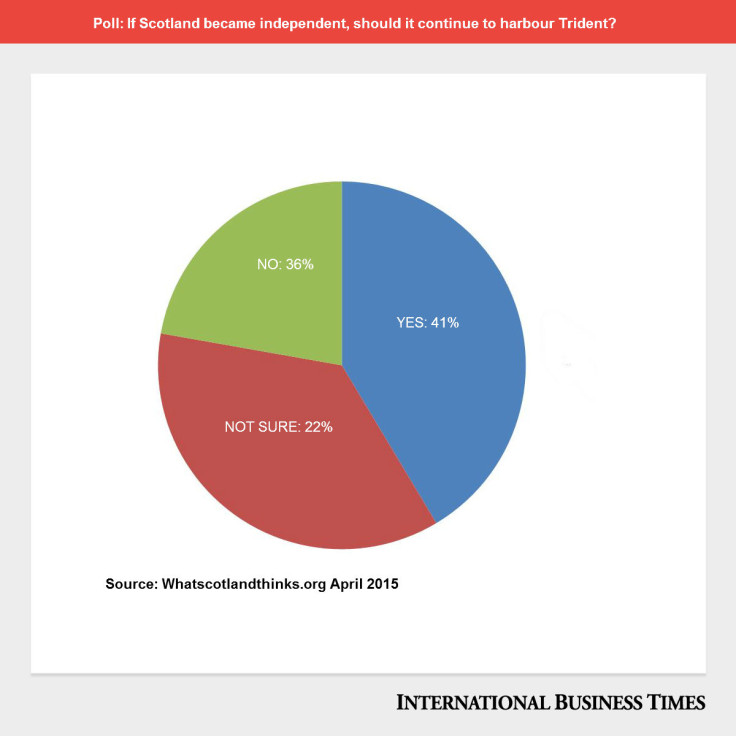Election 2015: Ed Miliband needs Scottish voters - so why does he treat us with contempt?

Four years ago, I turned to a friend in Helsinki for help, because I was deeply perplexed.
There had just been a general election in Finland, and I simply couldn't understand why the mainstream parties seemed to be falling over each other to insist that a right-wing, anti-immigration party that they all thoroughly disapproved of should become part of the new coalition government.

The True Finns (now known as the Finns Party) had finished third, and received less than 20% of the vote - so why, I asked, did the other parties not simply freeze the insurgents out of office?
My friend responded with great patience, evidently sensing how difficult it was for someone who had grown up in a winner-takes-all political madhouse like the UK to grasp how a mature continental democracy functions. She explained that the True Finns had performed well enough to demonstrate that they represented a strong and fast-growing strain of opinion, and it was important for the cohesion of Finnish society that the elite should not be seen to be barring the door to such a party, or their voters.
Labour in Britain might do well to draw on that wisdom to guide its dealings with the so-called "insurgents" of the 2015 election, because at the moment it appears hell-bent on doing the polar opposite.
As a centre-left, passionately pro-immigration party with eight years of experience in government, the SNP could hardly be more different from the True Finns, and yet they – and most importantly the vast numbers of voters in Scotland they represent – are being treated by Ed Miliband as unclean and untouchable. This isn't simply a case of an elite barring the door to a minority strain of opinion. The door is being firmly slammed in the face of one member of the UK's supposed "family of nations" and the unambiguous democratic choice it is seemingly about to make.
'The tribal temptation to carry on screaming "you lost" in Yes voters' ears appears far too strong.'
The irony is that Labour shouldn't even need to take on board high-minded concerns about societal cohesion to recognise the folly of their present mindset. They simply require a clear-sighted view of their own self-interest.
People who voted Yes in the independence referendum may represent less than half of the Scottish electorate, but an irony of fate has left them holding the whip hand – Labour can't retain their Scottish seats without winning Yes voters back from the SNP, and if that doesn't happen, Labour won't be able to form a government without the help of the SNP.
One way or another, then, Ed Miliband's hopes hinge entirely on treating the views of those who want Scotland to become an independent country with respect. But somehow the tribal temptation to construct a Berlin Wall around them, and to carry on screaming "you lost" in their ears, appears far too strong.
Consider the idiocy of Labour's supposed attempts to "win back voters" by launching a relentless onslaught on the SNP's plans for Full fiscal autonomy. People who voted Labour in 2010, and who then voted Yes in 2014, and who are now planning to vote SNP in 2015, were completely unmoved by the unprecedented campaign of terror waged by the establishment last September.
They heard Deutsche Bank's farcical doomsday warnings about a new Great Depression, and still voted for full sovereign independence. They subsequently turned against Labour for participating in Project Fear and talking their country down. And these are the people who are supposedly going to be impressed by daft, half-hearted scare stories about the terrible things that would happen to Scotland if it merely controls its own money within the confines of the UK?
'The Tories and Lib Dems are locked in a deadly embrace and are neutralising each other's best efforts to break free. The Lib Dems are left looking comically impotent, while the Tories merely look impotent.'
Read James's view on the Budget here.
Labour's strategy gets even sillier, because they've also been at great pains to point out that they will join forces with the Tories and the Liberal Democrats to block full fiscal autonomy, regardless of whether Scotland votes for it or not. In other words, they're declaring that the matter has already been settled, because even if the SNP were to win every single one of the 59 Scottish seats at Westminster, they would be easily outvoted by the 533 English MPs.
So what Yes voters are now invited to be scared of – even though they demonstrably aren't scared at all about the prospect of their country governing itself – is that full fiscal autonomy will 'only' be crushed in the Commons by a 550 vote margin, rather than by, say, a 630 vote margin. That's how mind-bogglingly fatuous the proposition is.
Do Labour truly not understand that they lost voters to both the Yes campaign and the SNP precisely because of the democratic outrage that Scotland does not get what it votes for within the current constitutional framework? It seems not, because they boast about how they will take advantage of that rigged system, and expect Scots to reward them for it.
'We haven't received the memo about the royal veto held by the MP for Doncaster North.'
And let's not forget Ed Miliband's latest clumsy statement on the prospect of a second independence referendum. After months of all three unionist parties sensibly (albeit grudgingly) acknowledging that a clearly-expressed wish by the people of Scotland for another referendum would have to be respected, Miliband suddenly announced that the people of Scotland could go hang themselves, because he had already decided that it wasn't going to happen.
Apparently he hadn't seen the opinion polls showing that ex-Labour Yes voters – you know, the people he can't win the election without – want and expect a second referendum within a decade. Many want it within the next five years. In their foolishness, they think that living in a democracy means they get to call the shots, and haven't received the memo about the royal veto held by the MP for Doncaster North.
In his moments of paying lip service to the need to reach out to Yes voters, Scottish Labour leader Jim Murphy has repeatedly claimed that his disagreement with them was only for "one vote on one day".
Wrong. For as long as you treat people's democratic aspirations with open contempt, your disagreement with them is forever. It may be partly unwitting, the product of a catastrophic failure of empathy, but almost every move Labour have made in the campaign so far has screamed "we only want No voters". I'm afraid that, unlike in September, No voters just aren't going to be enough.
James Kelly is author of the Scottish pro-independence blog, SCOT goes POP! Voted one of the UK's top political bloggers, you can hear more from James on Twitter:@JamesKelly
© Copyright IBTimes 2025. All rights reserved.






















